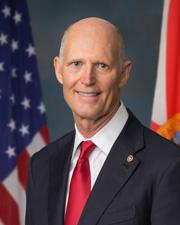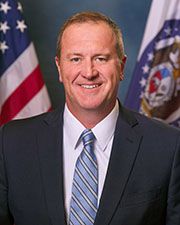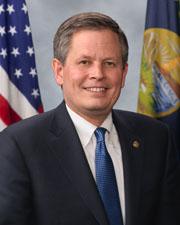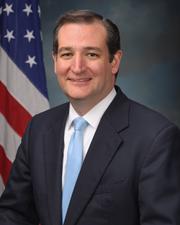0
0
0
No Budget, No Pay Act
2/11/2025, 5:53 AM
Summary of Bill S 88
Bill 119 s 88, also known as the "No Budget, No Pay Act," aims to prevent Members of Congress from receiving their pay after October 1 of any fiscal year in which Congress has not approved a concurrent resolution on the budget and passed the regular appropriations bills. This bill is designed to incentivize Congress to pass a budget and appropriations bills in a timely manner, ensuring that the government is funded and able to operate effectively.
If Congress fails to meet these requirements by the October 1 deadline, Members of Congress would not receive their pay until the necessary budget and appropriations bills are passed. This measure is intended to hold Members of Congress accountable for their responsibilities in managing the country's finances and ensuring that the government can continue to function without interruption.
The "No Budget, No Pay Act" is a bipartisan effort to promote fiscal responsibility and accountability within Congress. By tying Members' pay to the timely passage of budget and appropriations bills, this bill aims to encourage cooperation and compromise in order to avoid government shutdowns and financial crises.
If Congress fails to meet these requirements by the October 1 deadline, Members of Congress would not receive their pay until the necessary budget and appropriations bills are passed. This measure is intended to hold Members of Congress accountable for their responsibilities in managing the country's finances and ensuring that the government can continue to function without interruption.
The "No Budget, No Pay Act" is a bipartisan effort to promote fiscal responsibility and accountability within Congress. By tying Members' pay to the timely passage of budget and appropriations bills, this bill aims to encourage cooperation and compromise in order to avoid government shutdowns and financial crises.
Congressional Summary of S 88
No Budget, No Pay Act
This bill prohibits Members of Congress from being paid in a fiscal year until both chambers approve the budget resolution and pass all regular appropriations bills for that fiscal year. Retroactive pay is prohibited for such a period.
This bill takes effect on September 29, 2027.
Read the Full Bill
Current Status of Bill S 88
Bill S 88 is currently in the status of Bill Introduced since January 14, 2025. Bill S 88 was introduced during Congress 119 and was introduced to the Senate on January 14, 2025. Bill S 88's most recent activity was Read twice and referred to the Committee on Homeland Security and Governmental Affairs. as of January 14, 2025
Bipartisan Support of Bill S 88
Total Number of Sponsors
2Democrat Sponsors
0Republican Sponsors
2Unaffiliated Sponsors
0Total Number of Cosponsors
7Democrat Cosponsors
1Republican Cosponsors
6Unaffiliated Cosponsors
0Policy Area and Potential Impact of Bill S 88
Primary Policy Focus
Alternate Title(s) of Bill S 88
A bill to provide that Members of Congress may not receive pay after October 1 of any fiscal year in which Congress has not approved a concurrent resolution on the budget and passed the regular appropriations bills.
A bill to provide that Members of Congress may not receive pay after October 1 of any fiscal year in which Congress has not approved a concurrent resolution on the budget and passed the regular appropriations bills.
Comments
Sponsors and Cosponsors of S 88
Latest Bills
Western Wildfire Support Act of 2025
Bill S 91December 10, 2025
Water Rights Protection Act
Bill HR 302December 10, 2025
Intelligence Authorization Act for Fiscal Year 2026
Bill HR 5167December 9, 2025
FISH Act of 2025
Bill HR 3756December 9, 2025
ePermit Act
Bill HR 4503December 9, 2025
Strengthening Agency Management and Oversight of Software Assets Act
Bill HR 5457December 9, 2025
Department of Defense Appropriations Act, 2026
Bill HR 4016December 9, 2025
Unlocking our Domestic LNG Potential Act of 2025
Bill HR 1949December 9, 2025
A joint resolution providing for congressional disapproval under chapter 8 of title 5, United States Code, of the rule submitted by the Bureau of Land Management relating to "National Petroleum Reserve in Alaska Integrated Activity Plan Record of Decision".
Bill SJRES 80December 9, 2025
Roadless Area Conservation Act of 2025
Bill S 2042December 9, 2025





